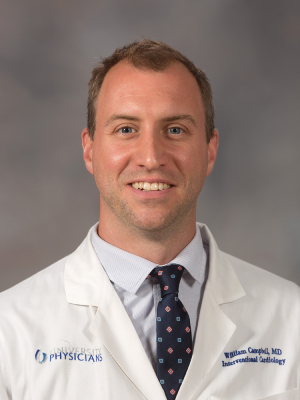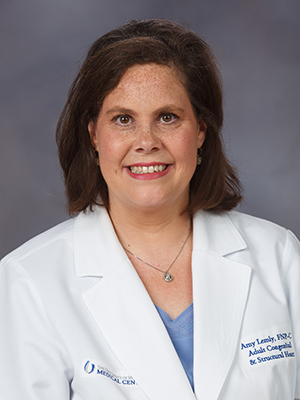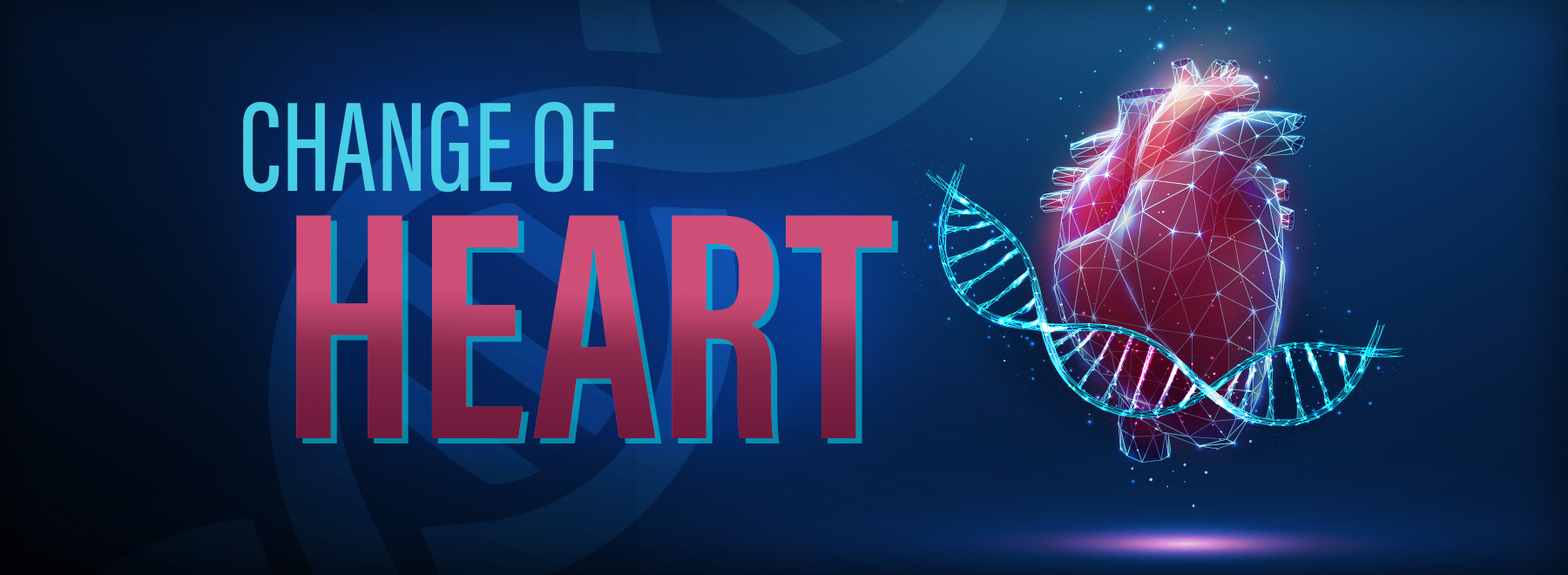Advancements in congenital heart disease care leads to thriving adult patient population
For every child born with congenital heart disease, there are now two adults living with it.

This reflects the significant progress made in treating congenital heart conditions, said Dr. Will Campbell, professor of cardiology and director of the Adult Congenital Heart program at the University of Mississippi Medical Center. UMMC’s Adult Congenital program is Mississippi’s only Adult Congenital Heart Disease (ACHD) Program that has achieved comprehensive accreditation through the Adult Congenital Heart Association (ACHA).
Campbell and Dr. Michael McMullan, director of cardiology at UMMC, are the state’s only board-certified adult congenital heart disease specialists.
“Adult congenital heart disease is a microcosm of medical advancement as a whole,” Campbell said. “This group of patients previously did not exist within our lifetime, as more severe types of CHD patients simply did not survive into adulthood.”
Medical and surgical advancements changed that. The number of adults with congenital heart disease surpassed the number of children with congenital heart disease in the mid-1980s.
“With further advancement, that number currently is about two to one. That is, there are twice as many adults with congenital heart disease as children,” Campbell said.
One out of every 100 babies is born with a congenital heart condition, he said. “In Mississippi, a state of about 3 million people, there are about 30,000 patients with CHD, of whom 20,000 are adults.”
Most CHD diagnoses are diagnosed at birth through neonatal screening, and some conditions are detected before babies are born through fetal echocardiograms.
“Some of the more severe forms of CHD are recognized early, and we currently have neonatal screening protocols in place to identify those patients,” Campbell said. “However, other types of CHD will not cause symptoms in the neonatal and often even the pediatric period and may not be recognized until much later.”
About half of the state’s adult CHD patients were diagnosed in childhood and transitioned to adult care. The other half are patients who were diagnosed in adulthood.
“As we always tell our medicine residents and general cardiology fellows, we currently rely heavily on physicians who are not specialists in adult CHD to appropriately suspect congenital heart disease and refer them to us.”
Regardless of when adult CHD patients were diagnosed, the UMMC adult CHD care team works with them so they can advocate for their health.
“We invest a large portion of each clinic visit helping our patients understand their anatomy and disease process to better engage them in their own care,” Campbell said. “We also give all our patients ‘passports’ that contain their diagnosis, relevant medical information and our 24/7 number to assist them and any providers they may see outside the UMMC system.”

Amy Lemly, a nurse practitioner and director of the adult CHD clinic at UMMC, said knowledge of their conditions is key for patients getting the care they need.
“They should know about their condition and what surgery they had, if applicable, and what medications they are taking and why,” she said. “Patients should know what the concerning symptoms are and report them immediately.”
Even if their conditions are corrected through surgery, CHD patients are not “cured,” Campbell said. “Although it varies widely by specific diagnosis, there are commonly late complications and issues that require lifelong follow-up care.”
During clinic visits, most adult CHD patients have a basic test of heart electricity, an electrocardiogram or EKG, during a clinic visit. UMMC’s care includes specially trained congenital cardiac sonographers who conduct ultrasound heart evaluations. In certain cases, more advanced imaging such as cardiac CTs or MRIs conducted by Medical Center specialists are necessary. Many repairs that previously required open heart surgery, such as valve replacement, can now be addressed with a catheter-based approach.
“The importance of a quality physical examination “cannot be underestimated and is mandatory for every patient, every visit,” Campbell said. “Exam findings often dictate whether further testing is necessary. As patients come from all over the state and surrounding areas, our team does an amazing job of coordinating same-day testing to limit patient inconvenience and travel.”
A major concern for ACHD patients is insurability, Campbell said, “as all our patients, by definition, have preexisting conditions. The vast majority of our patients can live normal, health, unrestricted lives with appropriate medical care and follow-up.”
In addition to clinical care, adults with CHD should enjoy a heart-healthy lifestyle, Lemly said.
“Lifestyle plays a crucial role in managing congenital heart disease,” she said. “Physical activity, as appropriate, is imperative to maintaining cardiovascular function, a healthy body weight and other cardiovascular-related conditions. A diet that is low in fat and cholesterol will help control weight, cholesterol and blood pressure. As with anyone, smoking should be avoided, and alcohol should be consumed only in moderation.”
Another essential is dental care. “Routine dental cleanings are of utmost importance to avoiding any infections that could lead to endocarditis, a rare but life-threatening infection of the heart’s inner lining.
Patients are able to make self-referrals or they can be referred by another provider. To speak to a scheduler, call 601-984-5678, press option 2 and then option 5. A referral can also be sent to the program’s fax number, 601-984-2329.
With appropriate medical care, CHD patients can live full, active lives, Campbell said. “That’s why we’re here.”
The above article appears in CONSULT, UMMC’s monthly e-newsletter sharing news about cutting-edge clinical and health science education advances and innovative biomedical research at the Medical Center and giving you tips and suggestions on how you and the people you love can live a healthier life. Click here and enter your email address to receive CONSULT free of charge. You may cancel at any time.



